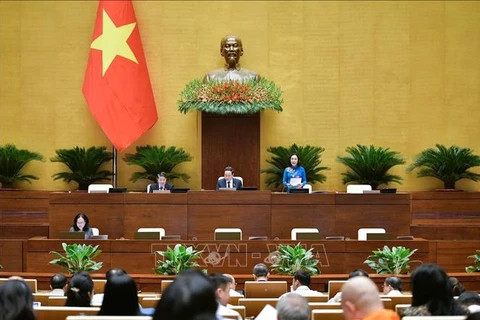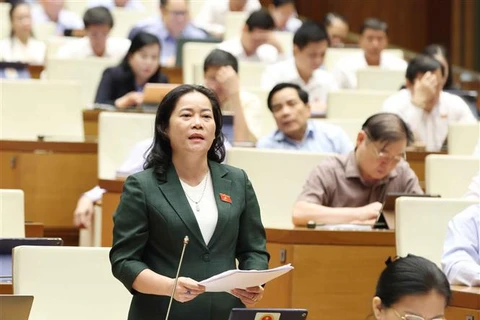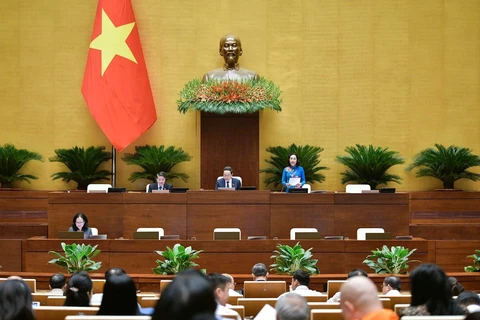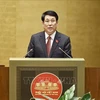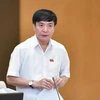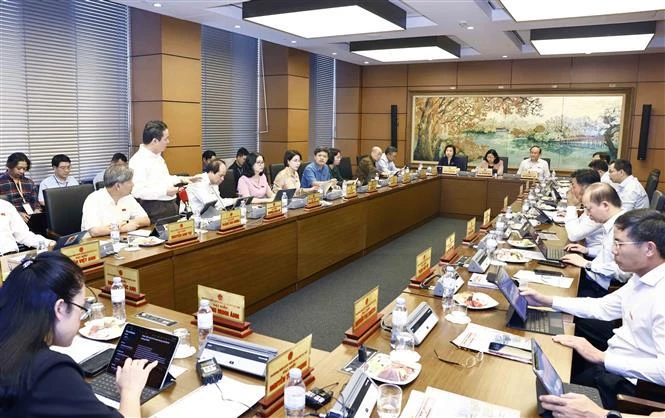
Hanoi (VNA) – The 15th National Assembly continued its 8th session in Hanoi on October 26, focusing on group discussions that shape socio-economic landscapes for 2024 and 2025.
They deliberated on a range of issues, including the results of implementing the socio-economic development plan for 2024; the draft socio-economic development plan for 2025, the enforcement of the Constitution, laws and resolutions of the NA, and the NA Standing Committee’s ordinances and resolutions.
A focal point of the discussions was the State budget performance in 2024, and the State budget estimate and allocation plan of the central budget for 2025. Other topics included adjustments and supplements to the State budget estimate, adjustments to the national land use planning for 2021-2030 with a vision to 2050, and the policy on additional State investment in the Joint Stock Commercial Bank for Foreign Trade of Vietnam (Vietcombank).
According to the Government's report, Vietnam’s economy is on a robust growth trajectory, with GDP growth reaching 6.82% in the first nine months of this year. The whole year's growth is projected to stands at 6.8-7%, surpassing the NA's target of 6-6.5%. The average consumer price index increased by 3.88% in the nine months, while State budget revenues exceeded 85% of the estimate, up 17.9% year on year. Notably, nearly 200 trillion VND (8.3 billion USD) in taxes, fees, and land rents have been exempted, reduced, or extended for the entire year, providing much-needed relief to businesses and individuals alike.
Trade volume hit 578.5 billion USD in the first three quarters, up 16.3% year on year, with a trade surplus of nearly 20.8 billion USD. The economic structure is evolving, shifting towards a digital and green economy. This transition is marked by an increase in the proportion of the industrial, construction and service sectors, while the agricultural sector's share is declining.
Looking ahead to 2025, the Government prioritises fueling growth by renewing traditional growth drivers and advancing new growth engines. Key tasks include maintaining macro-economic stability, controlling inflation, and ensuring major balances of the economy. The Government aims to improve credit quality and achieve credit growth of over 15%.
A stronger emphasis will be placed on development institutions, with a renewed mindset focused on tight management while fostering growth and maximising resource mobilisation to create new development spaces. The Government is committed to decisively cutting and simplifying administrative procedures, promoting decentralisation, and allocating resources.
Human resource development remains a priority. The Government plans to continue accelerating basic and comprehensive reform in education and training, enhance cultural development, and improve the material and spiritual lives and health of people. Efforts to combat corruption, negative phenomena, and wastefulness will be intensified, with a focus on building a clean, integrity-driven, action-oriented government that serves the people.
In the afternoon, deputies engaged in a debate on the draft revised Law on Electricity./.
